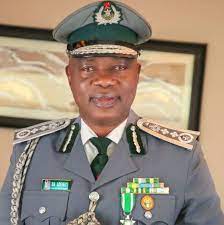Recently, President Umar Yar’ Adua sent an executive bill to the National Assembly for the creation of a maritime security agency by the federal government as a follow-up to the recent amnesty deal with the militants in the Niger Delta region.
If the Maritime Security Agency bill sails through, it then means that Nigeria will have another agency to take charge for post- amnesty peace efforts in the Niger Delta and indeed for the maritime sector.
The proposed agency is expected to have wide ranging powers, including performing coastguard functions, inspection of ships, arrests of suspects and carry firearms within the Nigerian coastal territory. These responsibilities are in addition to providing security information on oil and gas pipelines, rigs, platforms and all other established installations.
The initiative of the president is commendable in that he is genuinely seeking peace; at least, this has been demonstrated by his commitment to the recent amnesty which the federal government granted thousands of militants and which appears to have been largely successful.
The Niger Delta, apart from being a distinct component of Nigeria, is also the hub of the nation’s oil and gas sector; it is also strong component of the nation’s maritime sector hosting at least four ports. It is this unique natural endowment that makes the relationship between the region and the maritime sector a symbiotic one, in which case, the region’s aquatic endowment makes it a maritime region and the sector also provides means of livelihood for thousands of Niger ‘Deltans’.
While the militancy in the region may be blamed for the unrests in the oil and gas sector, its effect is not limited to the sector alone as the international shipping community has severally complained about rising attacks on ships and smaller water crafts including fishing trawlers within the Nigerian coast. In the attacks, captains and crew of vessels calling in Nigerian ports have been killed and maimed with valuables lost to daredevil sea robbers.
Apparently, in response to repeated outcry by stakeholders, the Nigeria’s chief of defence staff, Air Chief Marshal Paul Dike sometime ago inaugurated an 11-member inter agency task force to tackle the unrests and militancy as well as sea robbery on Nigerian waters.
Members of the committee were drawn from the armed forces, Customs, Police, Nigerian Ports Authourity, NIMASA and ministries of transport, interiors as well as the State Security Service (SSS).
Just like we predicted at that time, that security committee was not able to stop these militants who masquerade as sea robbers and whose sophisticated fire power is not in doubt. Arguably, the committee only succeeded in harassing hapless owners of private jetties and tank farms in Lagos.
But on going moves by the presidency to establish a new maritime security agency may create more frictions. First, the proposed agency will be in conflict with the provisions of the law which established the Nigerian Maritime Administration and Safety Agency (NIMASA). Second, if the proposed agency is allowed to see the light of the day, it will be a duplication of the Coast Guard Bill which is currently before the National Assembly. Thirdly, some sections of the armed forces are reportedly not too happy that the proposed agency will strip them of certain core responsibilities.
While it is correct that the Coast Guard Bill is still in the works, the NIMASA Act of 2007 is however already an Act of the National Assembly. By virtue of the Act, NIMASA is saddled with the responsibility of ensuring maritime safety and security as well as protecting the marine environment.
It is not unlikely that successive headships of NIMASA would be blamed for the current development. The argument is: if the agency had risen up to the challenge of its responsibilities as the nation’s maritime safety administration agency, perhaps there would not have been any need for a second agency that will eventually strip NIMASA of almost 80 per cent of its statutory responsibilities.
Its alliance with the military which informed the intervention by the chief of defence staff and the eventual creation of the task force is a failure.
While it is correct that NIMASA has largely failed in the pursuit of this mandate, but it is the attempt to address this failure that led to the clamour for a Coast Guard which is fashioned after a similar body in other maritime domains. The enthusiasm that has so far greeted the Coast Guard Bill among stakeholders in the maritime sector is a pointer to its relevance.
While the maritime security agency which the President is canvassing is laudable, it is unlikely that it will solve any problem, rather it is likely to create disaffection within maritime as well as the oil and gas sectors of the economy.
We feel strongly that what should be done is for the President to work through relevant committees of the two chambers of the National Assembly to expedite action on the Coast Guard bill. The (expectedly military) National Coast Guard will perform the duty that the President wishes that a separate maritime security agency should perform.
Depending on how much of public inputs the legislators still require before the Coast Guard Bill can scale through, the President can still make executive inputs into the bill rather than duplicate efforts by attempting to establish another agency.
The nation’s waterways are not safe, so are the channels and the various terminals (including oil and gas installations). What we conceive as the middle of the road approach is for the promoters of the Coast Guard bill and that of the Maritime Security Agency bill to put heads together and realign the modus operandi of the two proposed agencies.
We think that the law makers have beaten the Presidency to it, we also think that the nation deserves a new strategy in her resolved to secure her maritime oil and gas installations.
















Discussion about this post